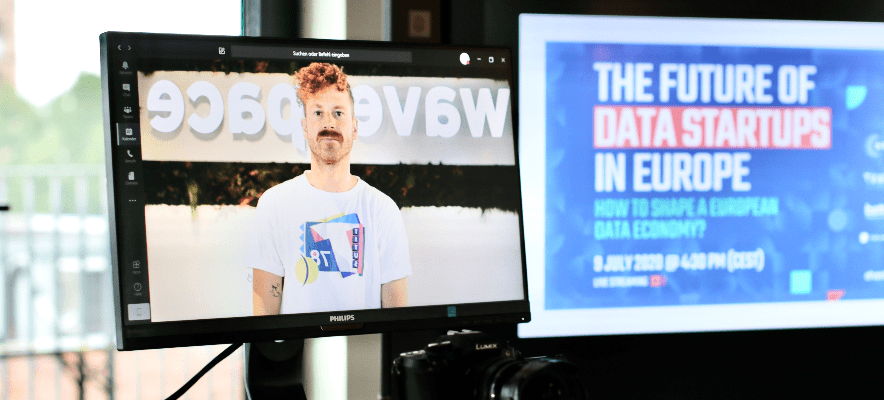From idea to implementation: 7 tips on how to make your idea successful
08. February 2018
What used to be the company suggestion scheme is nowadays internal idea competitions and startup challenges. Whatever you may call it, the result is usually the same: Campaigns, workshops and incentives are designed to encourage employees to come up with ideas that can increase sales revenues or save time and money. However, only a few are tested and implemented, in the worst case not a single one. And so the company suggestion scheme is increasingly turning into a “grave of ideas”.
It all depends on the implementation
Best example: In a German DAX company, the “Idea Challenge” is announced every year, in which more than 400 executives develop digital ideas. Over the past three years, 400 to 500 ideas have emerged from each of them – so far, not a single one has been implemented. This is not an isolated case, but unfortunately the reality in many companies. Although the intention behind programmes such as the “Idea Challenge” is actually good, many companies are missing out on giving the ideas enough room for implementation and testing in the next step. On the one hand, there is a lack of resources, but on the other hand, there is a lack of committees that are able to decide freely and without prejudice what is tested in practice. Particularly in times of disruption and digital transformation, the following applies: The idea alone is worth nothing, it all depends on its implementation.
7 tips on how to implement your idea
Employees also tend to give up their ideas too quickly if they notice that they are not taken seriously after all. Frustration increases, innovation and motivation decreases. However, it is not only up to the companies to create the right structures – the individual can also set the right course to turn an Idea Challenge into an Idea Execution. The following seven factors ensure that ideas are not wasted, but actually implemented.
1. Courage
 It takes a lot of courage to come up with ideas – especially if they appear to be radically different from everything that has been done so far. Nevertheless, success is always based on the willingness to take risks. In German companies in particular, there is often a lack of a “culture of failure” that sees failure not as a defeat, but as an opportunity to become even better. But even an allegedly crazy idea is often worth testing on a small scale. Who knows – maybe it’s not that crazy after all?
It takes a lot of courage to come up with ideas – especially if they appear to be radically different from everything that has been done so far. Nevertheless, success is always based on the willingness to take risks. In German companies in particular, there is often a lack of a “culture of failure” that sees failure not as a defeat, but as an opportunity to become even better. But even an allegedly crazy idea is often worth testing on a small scale. Who knows – maybe it’s not that crazy after all?
Tip: Give every idea a chance.
2. Empathy
 If you want to be successful, you must be able to put yourself in the shoes of others. The development of new ideas should also focus on those who will be affected by change. What does the customer need to be able to use our product even better? How would the everyday working life of our colleagues change if we changed our processes in the future? How does the company benefit when working more efficiently or faster? Questions like these help to better assess the situation of those affected.
If you want to be successful, you must be able to put yourself in the shoes of others. The development of new ideas should also focus on those who will be affected by change. What does the customer need to be able to use our product even better? How would the everyday working life of our colleagues change if we changed our processes in the future? How does the company benefit when working more efficiently or faster? Questions like these help to better assess the situation of those affected.
Tip: Ask the individual target groups directly where their pain points lie and develop the right ideas based on them.
3. Focus
 Of course, everyone wants to change business models with his or her idea, to go radically new ways, to change the world. After all, pioneering spirit and a “doer mentality” are not bad things per se and are the basis of any successful business start-up. And yet, it often helps to start small first, with pragmatism and a very clear focus – at departmental level, in a team or on a specific project. In such a “protected space”, decisions do not have to be agreed on several hierarchy levels, the decision paths are shorter and testing can be started directly. Ideally, what works well on a small scale can also be transferred to the whole thing.
Of course, everyone wants to change business models with his or her idea, to go radically new ways, to change the world. After all, pioneering spirit and a “doer mentality” are not bad things per se and are the basis of any successful business start-up. And yet, it often helps to start small first, with pragmatism and a very clear focus – at departmental level, in a team or on a specific project. In such a “protected space”, decisions do not have to be agreed on several hierarchy levels, the decision paths are shorter and testing can be started directly. Ideally, what works well on a small scale can also be transferred to the whole thing.
Tip: Test your ideas in a “protected space” first.
4. Agility
 Digital transformation demands agility, speed and flexibility from companies. Large annual plans and the development according to requirement specifications have long since ceased to make sense, because customers’ requirements change more frequently and radically than before. Therefore, ideas must be tested in practice as quickly as possible and then be continuously adapted. This is the only way to find out early on whether an idea makes sense.
Digital transformation demands agility, speed and flexibility from companies. Large annual plans and the development according to requirement specifications have long since ceased to make sense, because customers’ requirements change more frequently and radically than before. Therefore, ideas must be tested in practice as quickly as possible and then be continuously adapted. This is the only way to find out early on whether an idea makes sense.
Tip: Good plans are not made on paper, but in reality.
5. Teamwork

As good as an idea may be – a single person will not be able to implement it alone. Even the most capable and motivated employee can only be successful if he or she works in a team. Especially against the background of digital transformation, networking and teamwork are becoming an important success factor. Those who know their limits and know where they need help can turn to the right people and reach their goals faster and more efficiently.
Tip: Network within and outside the company.
6. Determination
 Success always requires a good portion of determination. If you have a really good idea and believe strongly in it, you should not give it up at the first setback. It is often worthwhile to remain stubborn and ask for feedback. At the same time, not every idea is immediately comprehensible to everyone. Therefore, it is important to place them with the right people and make sure they understand the intention behind it.
Success always requires a good portion of determination. If you have a really good idea and believe strongly in it, you should not give it up at the first setback. It is often worthwhile to remain stubborn and ask for feedback. At the same time, not every idea is immediately comprehensible to everyone. Therefore, it is important to place them with the right people and make sure they understand the intention behind it.
Tip: If you burn for your idea, the spark will also jump over to others.
7. Feedback
 Why wasn’t my idea put into practice? Was it too crazy, too expensive, not feasible? Should I have placed it elsewhere? Everyone knows it: Suggestions for improvement are submitted to the boss or the idea management department and then disappear somewhere in Nirvana. How well they went down, whether they were discussed at all and why they never came to fruition is something that the creator of the idea usually never learns. But if you want to assert yourself, you need to know what the decision-makers value.
Why wasn’t my idea put into practice? Was it too crazy, too expensive, not feasible? Should I have placed it elsewhere? Everyone knows it: Suggestions for improvement are submitted to the boss or the idea management department and then disappear somewhere in Nirvana. How well they went down, whether they were discussed at all and why they never came to fruition is something that the creator of the idea usually never learns. But if you want to assert yourself, you need to know what the decision-makers value.
Tip: Ask for feedback and learn from your experiences.





* Required field
abraham Beckers 9. May 2018 · 13:05
Digitization comes with different skills and management skills. An open business culture is not equal sharing ideas as hierarchie is often regarded as the decision maker. As innovation often goes beyond the expected (and tolerated) path of the actual business, budgetting process does hardly foresee game-changers. This in vast contrast with many japanes companies. How do we breach our ‘old’ habits?